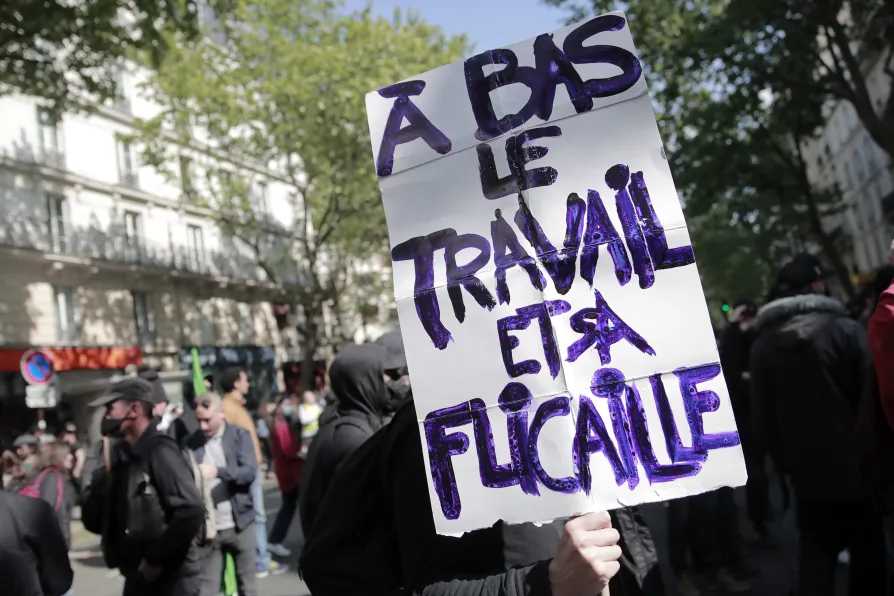Does widespread and uncontrolled use of AI change our relationship with scientific meaning? Or with each other? ask ROX MIDDLETON, LIAM SHAW and MIRIAM GAUNTLETT

 Demonstrators hold a placard reading: ‘Down with work and its cops’ during a May Day march in Paris
Demonstrators hold a placard reading: ‘Down with work and its cops’ during a May Day march in Paris
THE rough outcome of the French presidential election was the differentiation of the French nation into three distinct electoral blocs.
President Emmanuel Macron is the figurehead of the nominally centre right, wedded to neoliberalism, the Atlantic alliance and the EU, often socially liberal but invariably invested in the the property-owning myths and trickle-down idiocies of modern capitalist ideology.
Macron assembled a media-managed machine to incorporate the neoliberal elite and thus rendered both the traditional Gaullist party, now rebranded as Les Republicains, and the Socialist Party (PS) redundant as instruments for the rule of capital.

The desperate French president keeps running up the same political cul-de-sac. DENNIS BROE offers an explanation












